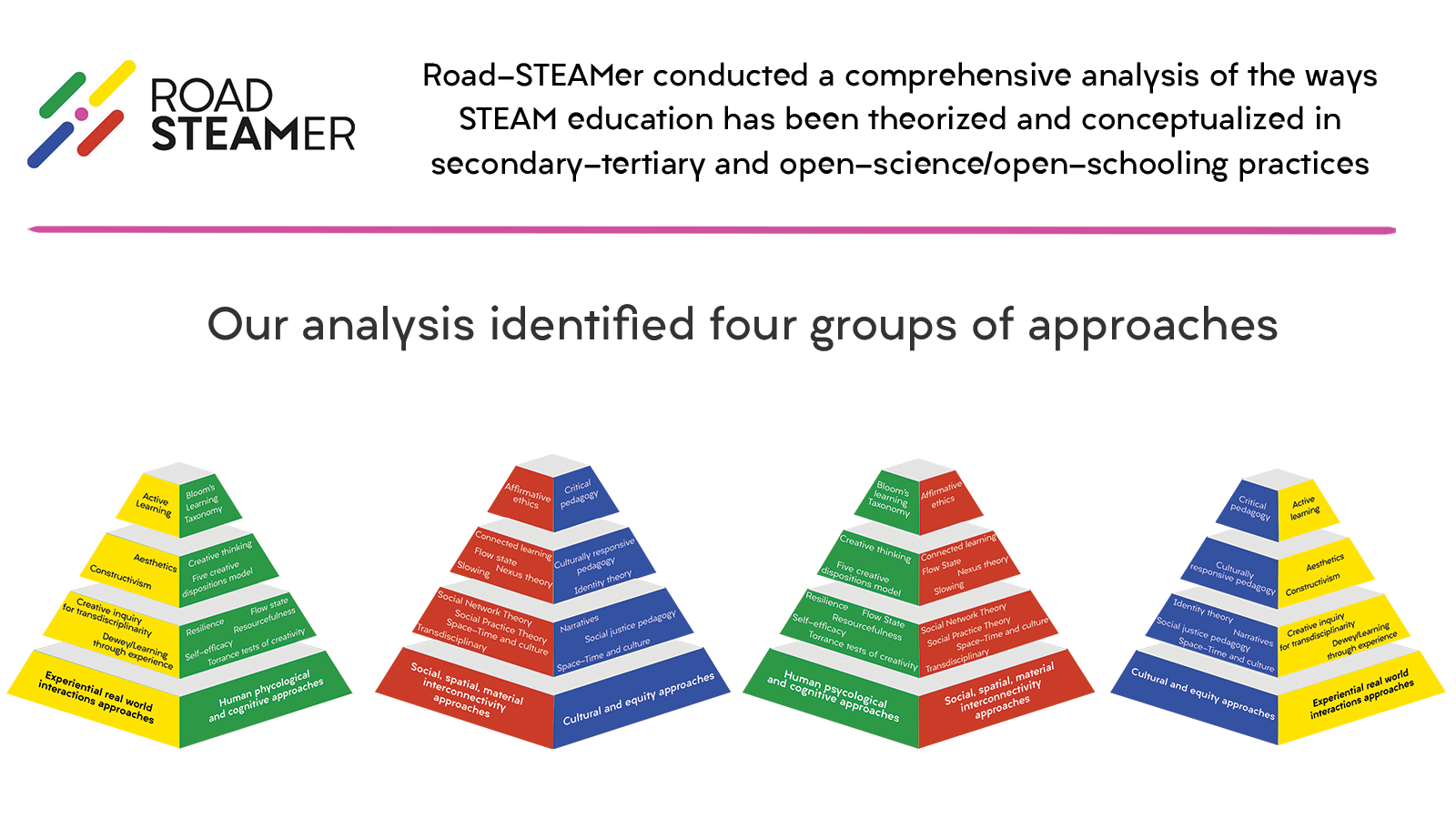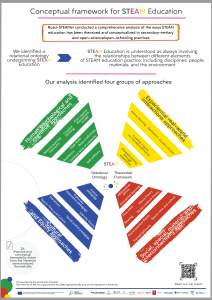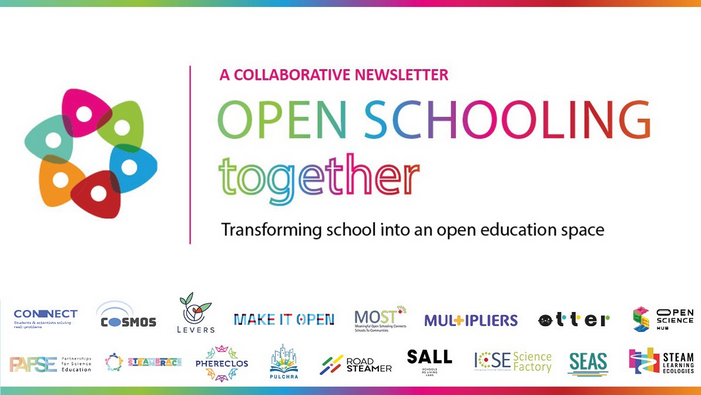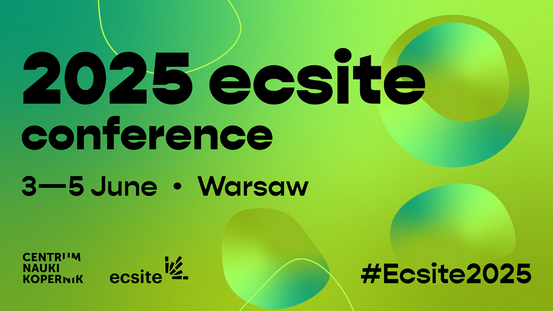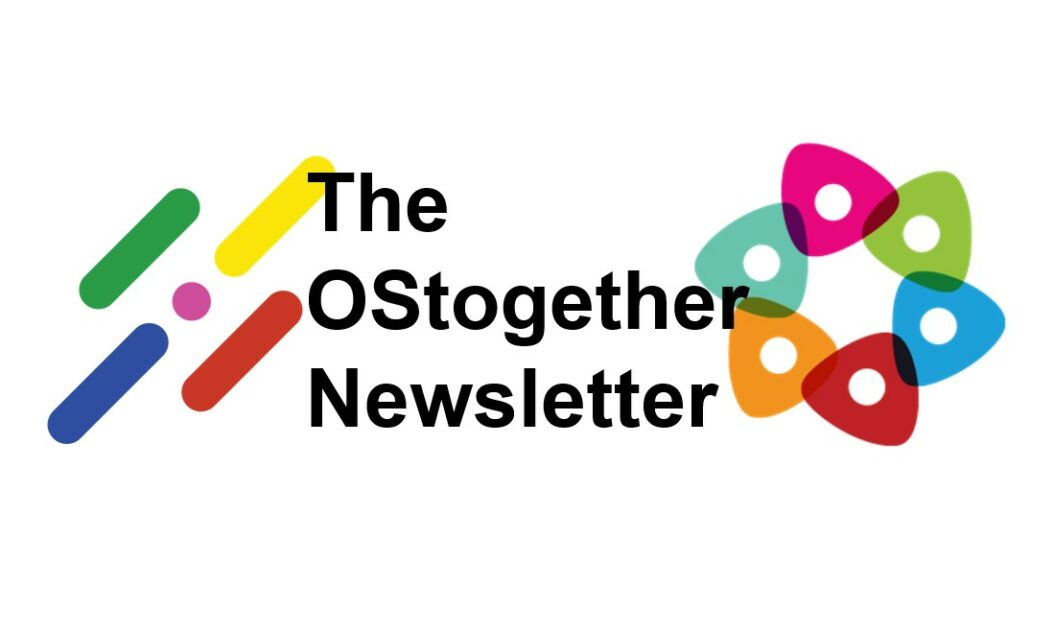This infographic offers an outline of a set of theoretical approaches linked to STEAM Education practice.
Road-STEAMer conducted a comprehensive analysis of the ways STEAM Education has been conceptualised in secondary and tertiary schooling and open-science/open-schooling practice. This research designed a conceptual framework emerging as grounded in relationality – a foundational concept for STEAM Education practice.
The set of four group of approaches identified were:
- experiential, real-world interaction approaches
- human psychological and cognitive approaches
- social, spatial and material interconnectivity approaches
- cultural and equity approaches.
You may read the full analysis on the conceptual framework for STEAM here.
